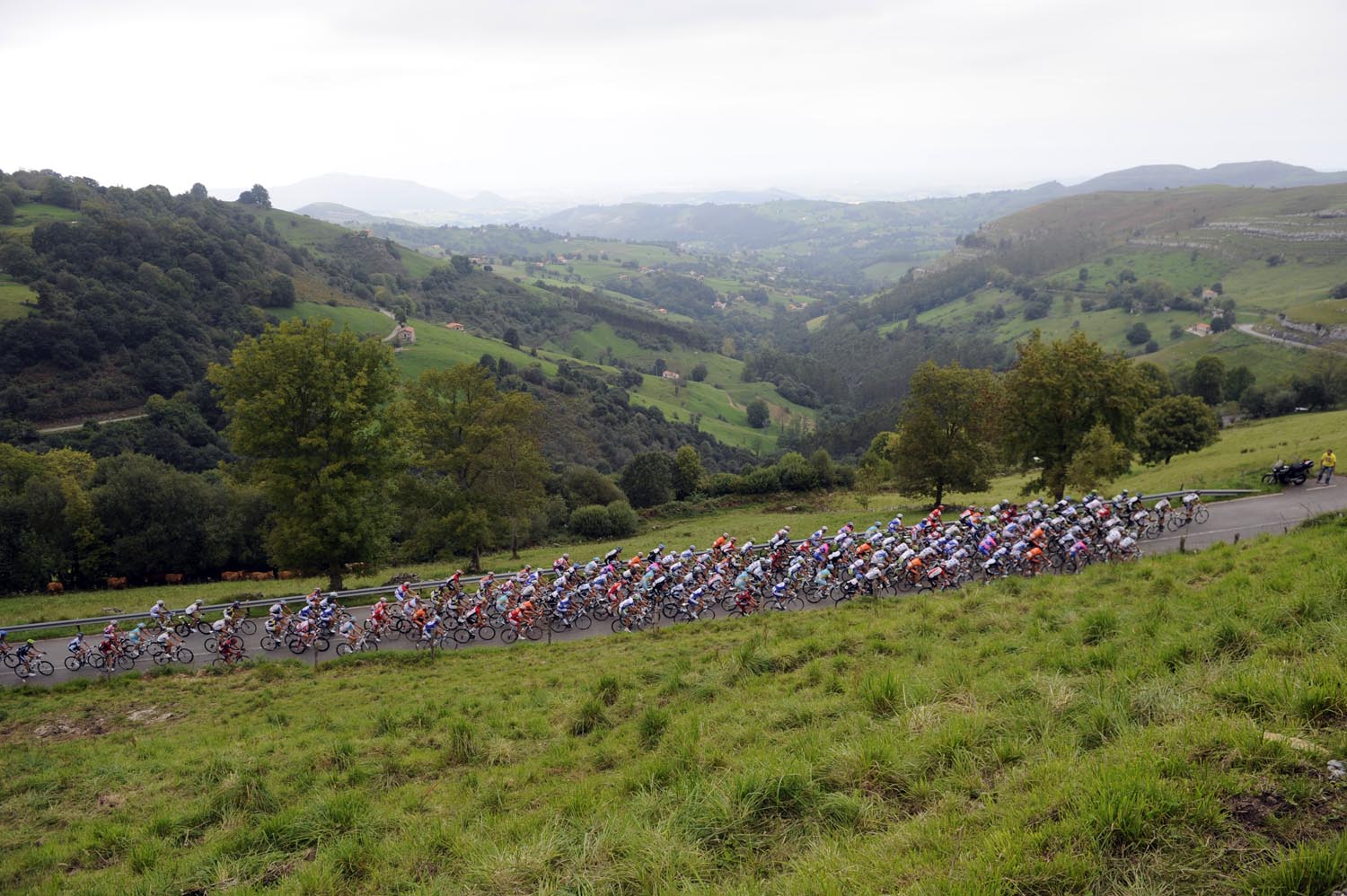Vuelta prepares to end 33-year absence in Basque Country

Strange but true: for more than three decades the Vuelta has avoided the Basque Country, Spain's cycling heartland, but tomorrow (Friday) that will finally come to an end.
There will be one stage directly into Bilbao, the Basque Country's largest city on Friday and another over several emblematic climbs on Saturday before finishing in the Basque Country's capital, Vitoria.
The reason for such a long absence is simple: in 1978, the race was faced by rioting separatist demonstrators, who blocked the Vuelta roads and in one or two cases attacked riders. One stage, a time trial, was cancelled, another shortened and the organising newspaper, El Correo Español (which was ironically enough, a Basque publication) pulled out.
With some pro-independence groups using violence in the Basque Country, since then the Vuelta has opted to avoid the area completely. But with a partial truce declared by terrorists ETA last year, slowly normality is at least partly returning to the region - and with it the Vuelta.
Most riders think that the Vuelta's return will be as peaceful as any other sporting event, with Euskaltel-Euskadi's Samuel Sanchez saying on Thursday "I expect the fans will fill the roadsides from one end of the Basque Country to the other."
"Cycling is a massively popular sport in the Basque Country and it's great to think the Vuelta will come back to a place where it is widely appreciated."
"After 33 years of not racing there, it''s going to be great to see the Vuelta come back," added team-mate Igor Anton.
Get The Leadout Newsletter
The latest race content, interviews, features, reviews and expert buying guides, direct to your inbox!
"There's going to be a lot of people" predicted Pedro Horrillo, a Basque ex-pro who now writes as a columnist on cycling.
"I've noticed more and more people getting interested in the Vuelta coming back, on the Urkiola climb [which the Vuelta tackles on Saturday] there are more people out riding their bikes and many of them know that the Vuelta goes through there."
"On top of that, there are two guys [Froome and Cobo] fighting all out for the race, lots of changes of leader, it's an interesting race."
"It's going to be good. The Tour of the Basque Country always gets big crowds, but people are working in April. Right now half the population is on holiday, it's happening over the weekend too. It might even be sunny."
Since 1978, the Vuelta and the Basque Country separatists have rarely clashed, although there were threats of a missile attack on stage four of the race in 2005 and in the early 1990s in nearby Navarre police drew their guns to clear protestors.
The Tour de France has had it worse: in 1992, when the race started in San Sebastian, a press car was firebombed and another had its tyres slashed.
Protests are expected, both when the race goes into the Basque Country and again in Bilbao and Vitoria, and some separatists have criticised the 100,000 euros Vitoria have spent on having a stage finish as a "waste of money," but it is thought the protests will be peaceful.
Related links
Vuelta a Espana 2011: Cycling Weekly's coverage index

Thank you for reading 20 articles this month* Join now for unlimited access
Enjoy your first month for just £1 / $1 / €1
*Read 5 free articles per month without a subscription

Join now for unlimited access
Try first month for just £1 / $1 / €1
Founded in 1891, Cycling Weekly and its team of expert journalists brings cyclists in-depth reviews, extensive coverage of both professional and domestic racing, as well as fitness advice and 'brew a cuppa and put your feet up' features. Cycling Weekly serves its audience across a range of platforms, from good old-fashioned print to online journalism, and video.
-
 FDJ-Suez, SD Worx-Protime, Lidl-Trek confirmed for Tour of Britain Women as strong list of teams announced
FDJ-Suez, SD Worx-Protime, Lidl-Trek confirmed for Tour of Britain Women as strong list of teams announced18 teams set to take part in four-day WorldTour stage race
By Tom Thewlis
-
 Cyclists could face life sentences for killing pedestrians if new law passed in England and Wales
Cyclists could face life sentences for killing pedestrians if new law passed in England and WalesReckless cycling currently carries a maximum two-year jail term
By Tom Thewlis